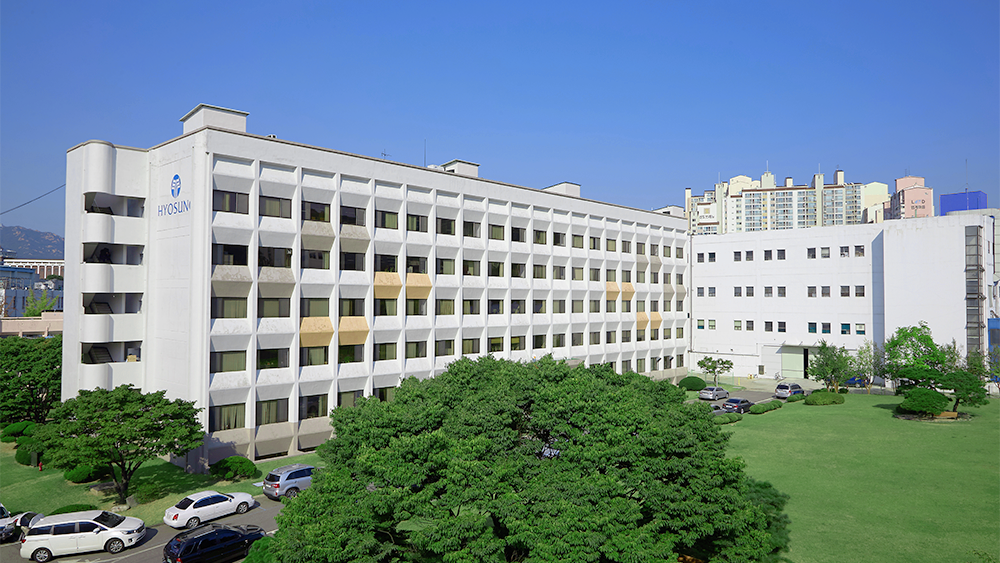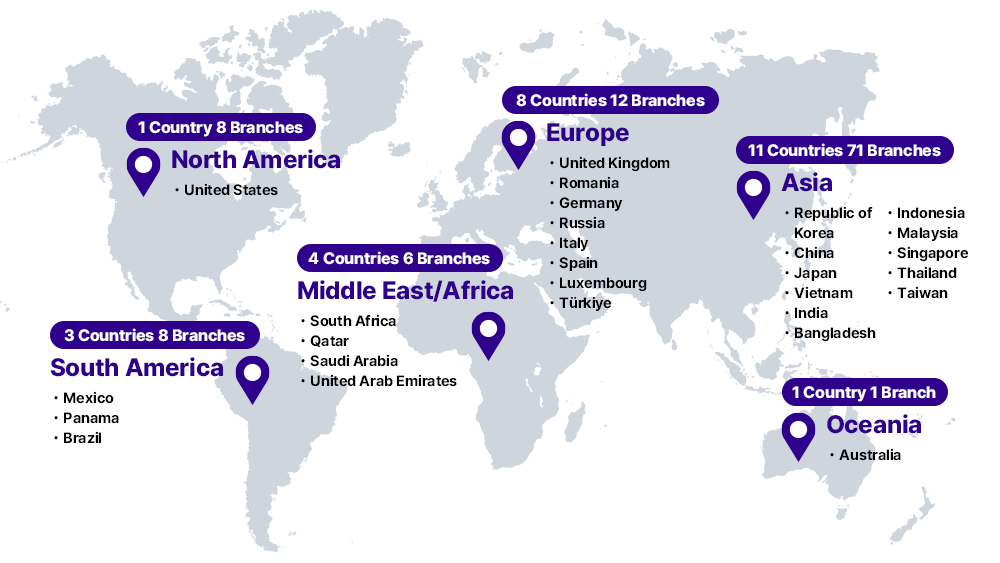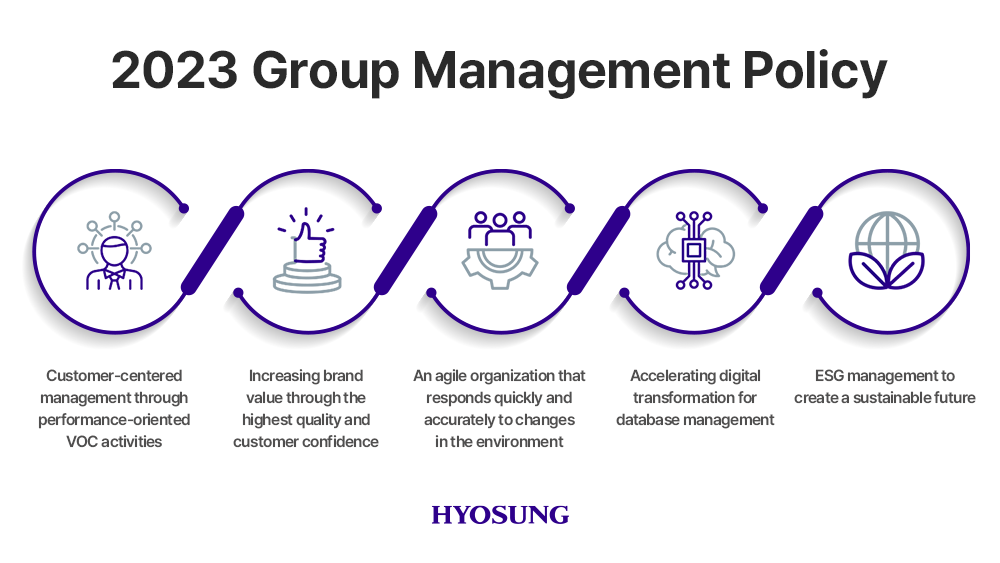Recalling the 56 splendid years of Hyosung, that shone as brilliantly as a morning star
2023.04.01
An unforgettable, depressing 90s shook Korea - a period of which parents still tell stories of the hardships they had to overcome. A crisis that led 11 out of 30 major Korean companies to go bankrupt and over 1.27 million people to lose their jobs simultaneously. In the summer of 1997, the Asian financial crisis originated in Thailand and swept across Southeast Asian countries, including Malaysia and Indonesia. Unfortunately, Korea was taken hold that same year.
On November 21st, 1997, Stanley Fischer, the Deputy Managing Director of the IMF, and Changyuel Lim, Deputy Prime Minister of Finance & Economy, held a confidential meeting in Seoul. That night, the government decided to request liquidity support from the IMF. These requests came at a cost, as the IMF had demanded high-interest rates, restructuring, and more. Korea was nearing default status, and nationwide movements took action to collect as much money and gold as possible from company executives and local citizens. As a result, the exchange rate soared exponentially, which had caused more than 3,000 companies in Seoul to go bankrupt. 1998 became a year of sadness, where numerous, hardworking individuals lost their jobs.

Hyosung was no exception. Like many others, the company faced a desperate situation as the business declined in revenue. Hyosung had developed a strong, close-knit company where employees had been working together for years. Instead of laying off the employees, who were like family, Hyosung opted for a business restructuring strategy that was based on humanism. Hyosung chose to overcome the crisis together with the employees.
Now, Hyosung shines as brightly as its name, which means ‘morning star’. It is global number one in the world’s spandex market share and selected as the world's best GIS (Gas Insulated Switchgear) company. Not to mention, Hyosung boasts number one in the world’s market share for tirecords, seatbelt yarns, and airbag fabrics. Their achievements are the result of overcoming numerous challenges, including the foreign exchange crisis.
The journey of Hyosung, becoming an icon of trust
Since the founding of Hyosung Corporation in 1957, followed by the establishment of Dongyang Nylon in 1966, Hyosung began its journey as a comprehensive chemical fiber maker. In order to secure certified patent technology, Hyosung established the first private technology research institute in Korea in 1971. This research institute became a major engine for their corporate growth.
That same year, Hyosung Advanced Materials' tirecords came into the spotlight. Hyosung developed its own technology to produce tirecords, which are now used by 50% of the world's automobiles. Based on keen business foresight and technical know-how, Hyosung expanded its materials business to produce PET containers, which were mostly glass products. This moment of innovation brought a paradigm shift to the container market in the late 1970s.
The 1990s saw a rise in global competition, and Hyosung took the opportunity to focus on developing high-value-added products. It developed its own technology to produce spandex, also known as ‘semiconductors of the fiber business,’ and core products such as 765KV transformers for ultra-high-speed power transmission systems. This helped kick-start their chemical business into the polypropylene, film, and TPA industry.
Hyosung has a long-established trust with its customers, owing to its solid technical capabilities and quality standards, which have been steadily recognized since its establishment. Furthermore, Hyosung is widely recognized as a top-tier, trusted company in not only South Korea, but across the global continent with a customer-centered mindset.

Hyosung's bold move in forecasting the future
With the looming foreign exchange crisis around the corner, Hyosung took a step forward in pursuing management efficiency through business restructuring and achieving record-breaking sales of one trillion won. In 1998, the company built on a new driving force to cope with the crisis.
At that time, Hyosung Group's flagship companies (Hyosung Industrial, Hyosung Heavy Industries, Hyosung Living Industry, and Hyosung T&C) all merged into Hyosung Corporation. The company took bold action to sell off its non-core businesses, including Hyosung BASF and Hyosung ABB, which were forecasted to be profitable during the crisis. Instead, Hyosung introduced the PG (Performance Group) and PU (Performance Unit) systems in order to pursue significant financial restructuring and management efficiency.
As a result, Hyosung's operating profit increased, and its debt ratio significantly improved after the foreign exchange crisis. Seizing the crisis as an opportunity, Hyosung secured a growth momentum since the start of the crisis to a fully established global market network in the present. Through globalization, the company has become a major player in the global market. In the 2000s, Hyosung dedicated its resources to exploring overseas markets and establishing itself as the world’s best in its flagship products, including tirecords and spandex. From then on, Hyosung embarked on a journey to become a global company by establishing a presence in the United States, China, Vietnam, Europe, and South America. Currently, it is expanding its global production bases to respond to overseas market entry and rapid growth, with 106 factories in 28 countries. Hyosung strives to provide differentiated products and services through a global production and sales system.
In 2018, Hyosung achieved a holding company structure to strengthen its management expertise. It established four subsidiaries, Hyosung TNC, Hyosung Advanced Materials, Hyosung Heavy Industries and Hyosung Chemical, and an independent management system led by professional management specialists. Hyosung has leaped forward to become a materials expert through outstanding technological prowess and bold decision-making, and currently holds approximately 550 domestic and foreign fiber patents. Additionally, it holds over 700 patents related to advanced materials, more than 1,000 patents related to chemicals, and approximately 700 patents related to heavy industries. As a global company operating businesses in various countries, Hyosung has firmly established its position as a global enterprise; by pioneering overseas markets while contributing to the Korean economy.

A hundred years of tomorrow, prepared through the voice of the customers
With its bold and innovative management foundation, Hyosung has been at the forefront of addressing environmental concerns. Hyosung TNC developed their iconic green recycled fiber, ‘regen’. In 2008, regen took off as an eco-friendly fiber made from recycled PET bottles. Since then, Hyosung has greatly expanded its lineup of eco-friendly functional fibers, which is now the leading global trend in eco-friendly fibers. Hyosung Chemical was also the first in the world to commercialize polyketone, an eco-friendly engineering plastic, and the liquid hydrogen project. Led by Hyosung Heavy Industries, this project is still being actively pursued today.
In 2017, during Chairman Cho Hyun-Joon of the Hyosung Group’s inaugural speech, he stated that he would create a company that listens to the voices of its customers and clients. Hyosung will strive to be a company whose pride lies in technology and a company that always wins. All of these points were embodied in the word 'customer.' In 2023, he expressed his aspiration to pursue customer satisfaction and happiness by moving toward a 'customer-immersed management' through a 'customer-first' policy. The mission to emphasize the 'customer,' has led Hyosung in a symbolic endeavor to not only listen and respond to the voice of the customer but also to understand the customer through multiple perspectives.
Hyosung's growth has always been based on the VOC (Voice of Customer) management philosophy, taken at every direction, and has enabled them to move strategically. Through reliable technological innovation for customer satisfaction, Hyosung is preparing for a leap toward a strong and successful future for the next 100 years.